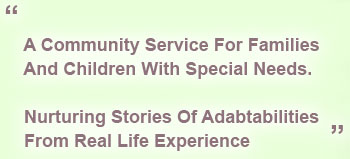Assessing Efficacy, a Resource
In This Section:
- General Evaluation Resources
- Human Subjects and Ethics in Evaluation
- Modeling the Program
- Program Lifecycle
- Sampling
- Measurement
- Design
- Analysis
- Reporting
Measure – The Self-Efficacy Questionnaire for Children
Entry Date: November 3, 2007
Description and Contact Information
Tool Name: Self-Efficacy Questionnaire for Children (SEQ-C)
Author(s) or organizations that developed this tool: Peter Muris
Year Published: 2001
Description: The Self-Efficacy Questionnaire for Children (SEQ-C) taps three main areas of self-efficacy: social self-efficacy that pertains to children’s capability to deal with social challenges; academic self-efficacy that refers to children’s perceived capability to master academic affairs; and self-regulatory efficacy that has to do with children’s capability to resist peer pressure to engage in high risk activities. In addition, SEQ-C scores correlated in a theoretically meaningful way with a measure of depression – that is, lower SEQ-C scores indicate a higher level of depression.
Cost, if any: N/A
This tool is available through:
Assessing Outcomes in Child and Youth Programs: A Practical Handbook, Revised Edition. 2005. Sabitelli, R., et al. (pages 53-56)
For more information go to:
Instructions for contact or permission are:
No permission is required for the use of this scale.
To contact Peter Muris:
E-mail: muris@fsw.eur.nl
Postal Address: Peter Muris; Erasmus University RotterdamInstitute of Psychology; Woudestein, T13-37; P.O. Box 1738; 3000 DR Rotterdam
Outcomes / Age Groups / Sample Questions
Age Group: Recommended for Youth Ages 14-18 (Grades 8-12)
Respondent: Youth
Number of items in this tool: 24 (8 for each subscale)
This tool contains the following scales or subscales: Social Self-Efficacy, Academic Self-Efficacy, and Emotional Self-Efficacy
This tool measures: Youth Personal Adjustment
Program that this tool applies to: Jefferson County
Type of measure: Questionnaire
Measure availability/sample questions:
Assessing Outcomes in Child and Youth Programs: A Practical Handbook, Revised Edition. 2005. Sabitelli, R., et al. (Social Self-Efficacy Scale is on pages 53-54, Academic Self-Efficacy Scale is on pages 55-56)
Muris, P. (2001) A Brief Questionnaire for Measuring Self-Efficacy in Youths. Journal of Psychopathology and Behavioral Assessment, (23),145-149 (questions for Emotional Self-Efficacy Scale is on page 147)
Testing and Other Features
Field Tested?: Yes
Reliability and/or validity tested?: Yes, Cronbach’s Alpha was .88 for the total self-efficacy scale and between .85 and .88 for the subscale scores.
Comparative data?: Yes
Linked with an approach or curriculum:
Special Notes or Considerations: In addition to measuring a youth’s self-efficacy, the SEQ-C can also be taken as a vulnerability factor that has predictive value for the development of depression and as a result, can also be used as a treatment evaluation measure.
Research related to this tool includes:
Muris, P. (2001) A Brief Questionnaire for Measuring Self-Efficacy in Youths. Journal of Psychopathology and Behavioral Assessment, (23),145-149
Assessing Outcomes in Child and Youth Programs: A Practical Handbook, Revised Edition. 2005. Sabitelli, R., et al.








Social Networks
Follow Us